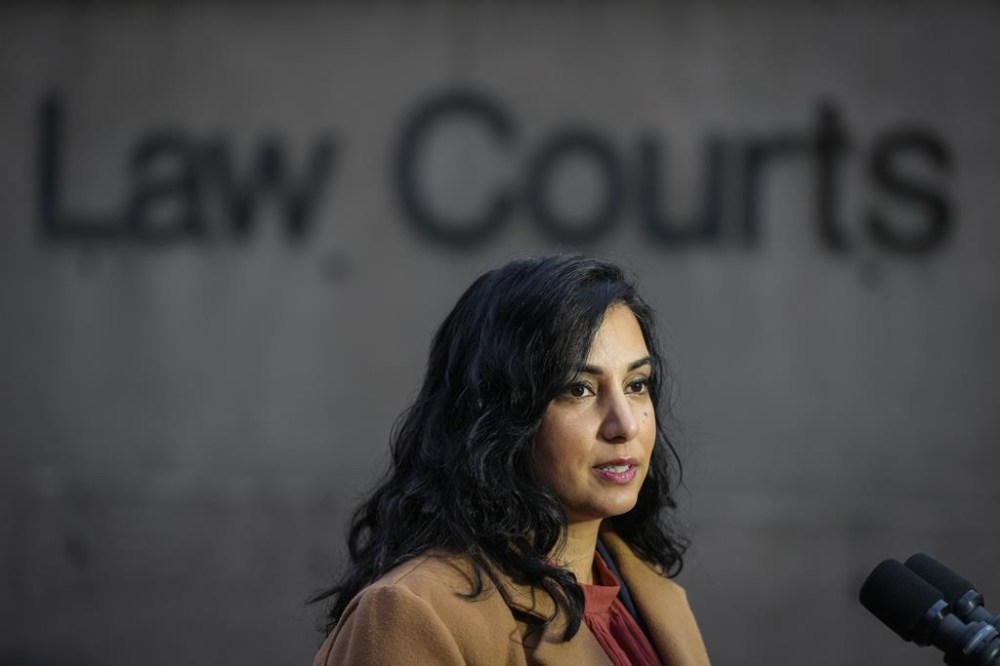B.C. Supreme Court certifies province’s class-action lawsuit against opioid providers
Advertisement
Read this article for free:
or
Already have an account? Log in here »
We need your support!
Local journalism needs your support!
As we navigate through unprecedented times, our journalists are working harder than ever to bring you the latest local updates to keep you safe and informed.
Now, more than ever, we need your support.
Starting at $15.99 plus taxes every four weeks you can access your Brandon Sun online and full access to all content as it appears on our website.
Subscribe Nowor call circulation directly at (204) 727-0527.
Your pledge helps to ensure we provide the news that matters most to your community!
To continue reading, please subscribe:
Add Brandon Sun access to your Free Press subscription for only an additional
$1 for the first 4 weeks*
*Your next subscription payment will increase by $1.00 and you will be charged $20.00 plus GST for four weeks. After four weeks, your payment will increase to $24.00 plus GST every four weeks.
Read unlimited articles for free today:
or
Already have an account? Log in here »
Hey there, time traveller!
This article was published 22/01/2025 (319 days ago), so information in it may no longer be current.
British Columbia’s attorney general says the province’s Supreme Court has certified the government’s class-action lawsuit against opioid manufacturers and distributors.
Niki Sharma says B.C. can now proceed as a representative plaintiff on behalf of other Canadian governments with the litigation aimed at recovering the costs of treating opioid-related diseases allegedly caused by the industry’s conduct.
She says in a statement the certification reaffirms B.C.’s commitment to holding pharmaceutical companies accountable for their role in the opioid crisis, which was declared a public health emergency in the province in April 2016.

The Supreme Court of Canada had already affirmed the constitutionality of a law allowing B.C. to pursue a class-action lawsuit on behalf of federal, provincial and territorial governments last November.
That’s after several opioid companies argued in B.C. Supreme Court that the province was overstepping its authority under the constitution.
But a majority of the Supreme Court of Canada found that B.C.’s law respects the legislative authority of other Canadian governments, which can choose to opt out of the proceeding, and the decision noted that nearly every province and territory as well as the federal government intended to take part in the class-action.
Sharma says the class-action’s certification marks a “significant milestone” in the proceedings that date back to 2018, when the province first launched the lawsuit.
“Our goal was clear: to recover the health-care costs of treating opioid-related harms and to hold manufacturers and distributors accountable for their role in allegedly using deceptive marketing practices to drive sales, contributing to addiction and overdose rates in the country,” she says.
The most recent data from the B.C. Coroners Service released in December says in the first 10 months of last year there were 1,925 overdose deaths, marking a nine per cent decrease from the same time period in 2023.
Canadian government statistics say there were more than 49,000 opioid toxicity deaths reported between January 2016 and June 2024 across the country.
This report by The Canadian Press was first published Jan. 22, 2025.
Note to readers: This is a corrected story. A previous version quoted the B.C. attorney general, who said that the Supreme Court of Canada had certified the lawsuit. In fact, the decision came from the B.C. Supreme Court.
